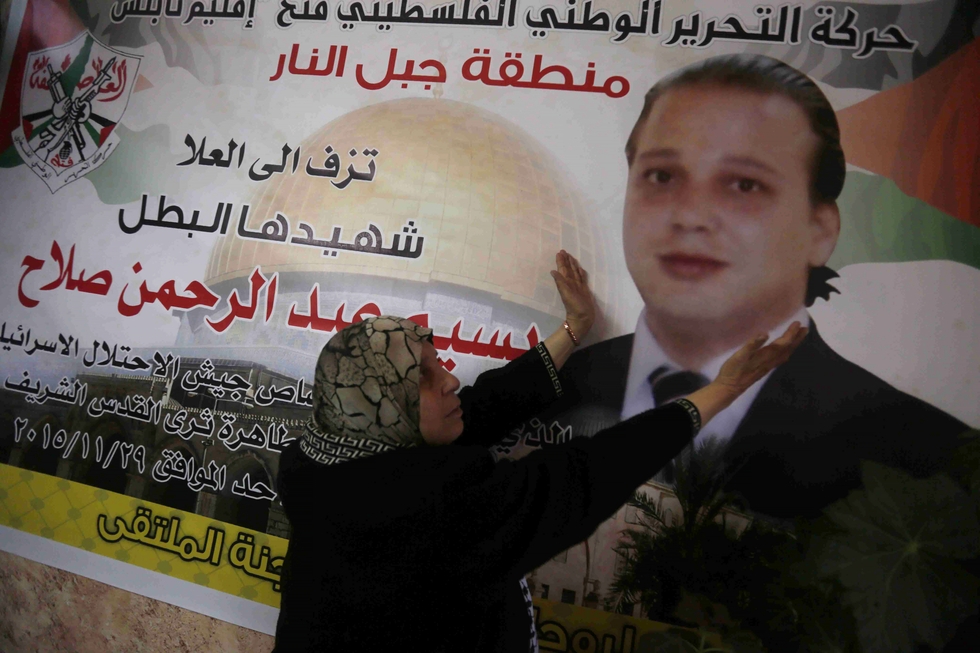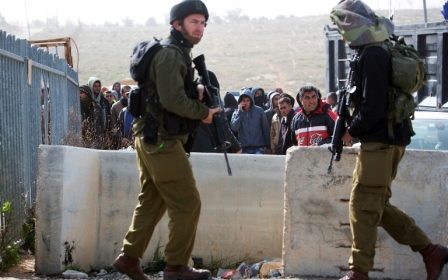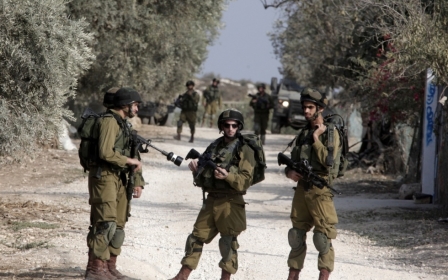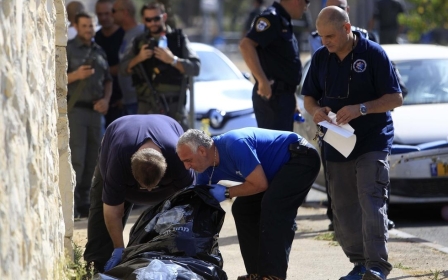Israeli-Palestinian battle doesn't end at death

After weeks of waiting for the funeral, Bassim Salah's family still couldn't bury his body when it was returned by the Israeli authorities too frozen and contorted to fit in the grave.
The 38-year-old Palestinian was killed in November while trying to stab an Israeli border guard near an entrance to Jerusalem's Old City, according to the police.
His body, like those of dozens of other Palestinians since a wave of attacks began in October, is the subject of a macabre dispute between the Israeli authorities and families seeking to grieve.
His brother Saad flicks through disturbing images of the corpse, after it was handed over by the Israelis to the Palestinian Red Crescent.
Before they could lay him to rest, his family in the West Bank city of Nablus was forced to watch the body slowly thaw after its return from storage in a freezer in an Israeli morgue.
"We only wanted the body to bury him in an honourable way," Saad said.
According to Islamic tradition, burial should take place as soon as possible after death.
The Israeli government announced on 14 October that it would not return the bodies of assailants as part of a range of measures designed to curb the spate of attacks.
Many funerals have been delayed, sometimes for more than three months.
'No respect'
A total of 156 Palestinians and 24 Israelis have been killed in three months of violence. Most of the Palestinians killed were carrying out attacks.
At the height of confiscations, Israel held 56 bodies, according to the Palestinians.
But the majority have been released in recent weeks, with only 10 still being held.
Mazen Hassan Arabeh, 37, was killed on 3 December while carrying out an attack at a checkpoint, according to the Israeli authorities.
The director of Abu Dis Medical Centre said it took 20 people to carry the body when it was returned because it was "completely frozen".
"It seems that they are tossing them in the refrigerator after their deaths without any regard for their shape," Abdullah Abu Hilal said.
"The occupation does not respect them even when they put their bodies in a fridge."
Rights groups have criticised the policy of withholding bodies, saying it increases tensions. And much of the Israeli establishment agrees.
The issue has divided the Israeli military - which supports returning the bodies - and Public Security Minister Gilad Erdan, who wants to avoid funerals becoming political rallies.
The army has returned all the bodies from the West Bank, for which it is responsible.
But those from annexed east Jerusalem, under Erdan's ministry, have been withheld.
"Until now, the bodies were held as every funeral turned into disruptions of order and a show of support for terror," said a spokesman for Erdan.
However, Defence Minister Moshe Yaalon has argued for their return to ease tensions, according to Israeli media reports.
"Past experience has taught us that holding bodies brings more harm than benefit," an Israeli official told AFP.
'Collective punishment'
Numerous marches have been organised in Palestinian communities to demand the return of the bodies.
When it does hand them over, Israel imposes conditions such as that funerals take place at night.
Families are also sometimes made to pay a deposit of several thousand shekels (hundreds of dollars) which is forfeited if the funeral does not pass quietly.
In east Jerusalem, Mohammed Alyan is still waiting for his son's body.
On 13 October, Bahaa Alyan boarded a bus in Jerusalem with a friend, Bilal Ghanem, shooting and stabbing passengers and killing three people. Ghanem was arrested and Alyan was killed.
His father called the retention of the bodies a "type of collective punishment and torture, especially for those from Jerusalem".
Israel also destroyed the family home as punishment, but he swears he will not submit to Israeli conditions for the body's return.
"We will not bury him at night or pay a guarantee, and we won't bury him outside Jerusalem," he said.
New MEE newsletter: Jerusalem Dispatch
Sign up to get the latest insights and analysis on Israel-Palestine, alongside Turkey Unpacked and other MEE newsletters
Middle East Eye delivers independent and unrivalled coverage and analysis of the Middle East, North Africa and beyond. To learn more about republishing this content and the associated fees, please fill out this form. More about MEE can be found here.




